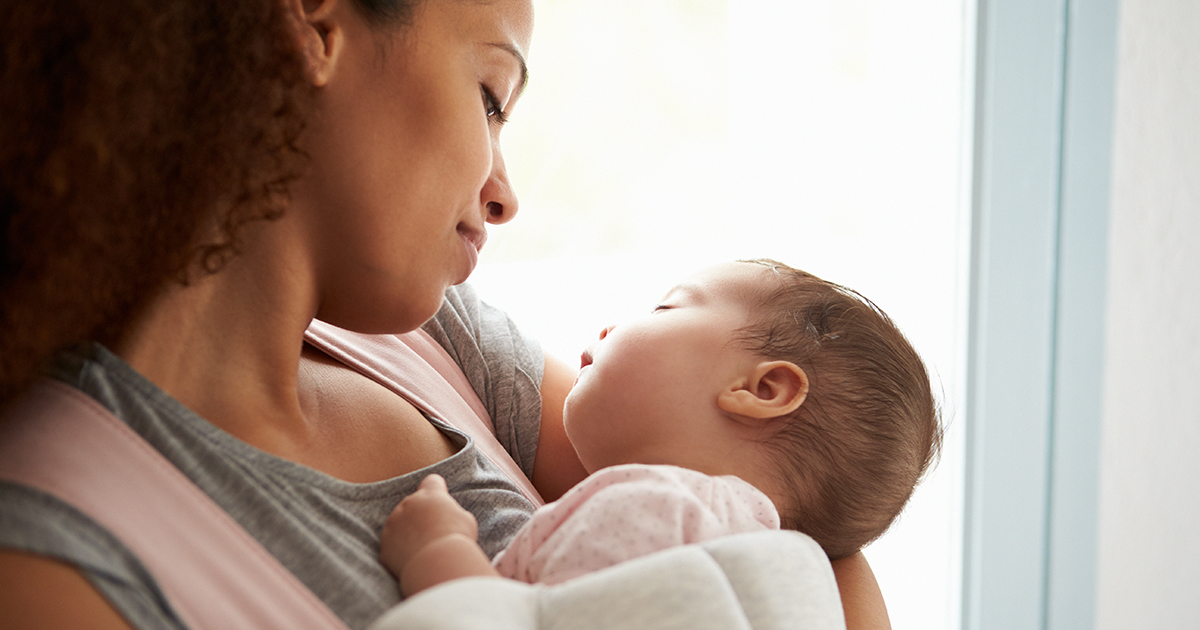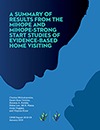A Summary of Results from the MIHOPE and MIHOPE-Strong Start Studies of Evidence-Based Home Visiting

 A healthy birth and positive experiences in early childhood can promote health and development. One approach that has improved outcomes for children and their parents is home visiting, which provides individually tailored support, resources, and information to expectant parents and families with young children. This brief summarizes recently published reports from two national studies of evidence-based early childhood home visiting: the Mother and Infant Home Visiting Program Evaluation (MIHOPE) and MIHOPE-Strong Start.
A healthy birth and positive experiences in early childhood can promote health and development. One approach that has improved outcomes for children and their parents is home visiting, which provides individually tailored support, resources, and information to expectant parents and families with young children. This brief summarizes recently published reports from two national studies of evidence-based early childhood home visiting: the Mother and Infant Home Visiting Program Evaluation (MIHOPE) and MIHOPE-Strong Start.
MIHOPE included 88 local programs that were funded through the Maternal, Infant, and Early Childhood Home Visiting program and that were operating one of four evidence-based models of home visiting: Early Head Start — Home-based option, Healthy Families America, Nurse-Family Partnership, and Parents as Teachers. The analysis for MIHOPE-Strong Start included 66 local home visiting programs for two of these models: Healthy Families America and Nurse-Family Partnership. While MIHOPE-Strong Start is focused on prenatal care and birth outcomes, MIHOPE is examining a broad range of outcomes. To provide reliable estimates of the effects of home visiting programs, families were randomly assigned to a local home visiting program or a control group who received information on other community services.
The main findings include the following:
-
The home visiting programs in the studies were generally well implemented, with appropriate support in place to help home visitors administer the intended services. This support included training for home visitors, supervision, structured parenting curricula, consultants to address specific family needs, and protocols for risk screening and referrals. However, the studies identified several ways that this support could be strengthened.
-
MIHOPE found positive effects on some family outcomes but MIHOPE-Strong Start found little effect on birth outcomes and prenatal behaviors. MIHOPE found positive effects across multiple outcome areas through the time children were about 15 months old. In contrast, MIHOPE-Strong Start found that the two evidence-based models that were examined had little effect on birth outcomes and prenatal behaviors. The findings from both studies are broadly consistent with results from previous studies of the evidence-based models of home visiting.
Previous studies of the four evidence-based home visiting models have found improvements in family outcomes after families have stopped receiving home visiting services. MIHOPE is therefore continuing to follow families as children age through kindergarten. The findings described in this brief represent only the first installment of information from MIHOPE on how home visiting improves outcomes for families and children.







